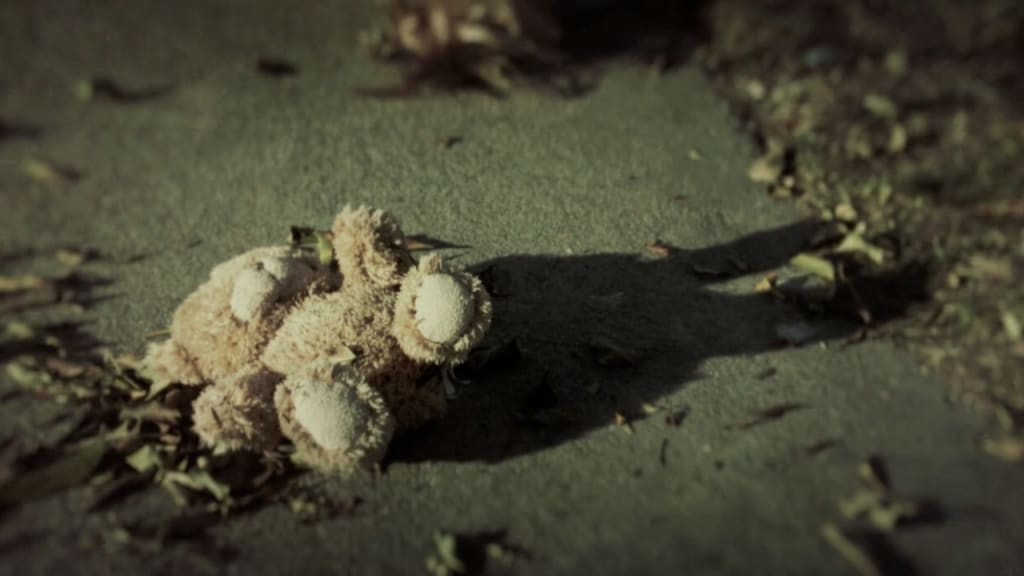
I have been living with PTSD for a very large portion of my life. My diagnosis was made about 9 years ago and is due to an unfortunate chain of events in my childhood that included a few types of abuse to both myself and members of my immediate family.
It all started with trauma.
Trauma is a word that many people know about fairly well. A trauma encompasses a wide variety of circumstances and situations and can have long-lasting effects on the psyche. Humans aren’t the only ones who can experience trauma and trauma-based disorders either. There are cases in which hamsters who have fallen out of broken wheels have had rapid weight gain due to stressful avoidance of their wheels. There are even instances where wolves or bears have starved themselves or avoided certain areas of forests due to the death of a loved one or a run in with a hunter or predator.
Now that the science is out of my system (or at least some of it) let’s talk about the disorder known as PTSD.
Post-Traumatic Stress Disorder seems pretty self-explanatory on the surface. A trauma (usually associated with the military or child abuse victims) causes a disorder based around stress (including but not limited to anxiety, mood dysfunction, hallucinations, and more.)
PTSD has become one of the hardest diagnoses in the past few years. When the disorder was first talked into existence, it was basically a military diagnosis alone. In the past few years, the term has become much more widely used for various cases as long as a handful of symptoms were present, were fairly consistent, and began with something akin to a trauma.
You see, a trauma can be anything from watching your house burn down from the inside to having a really bad stubbed toe one time depending on the one giving the diagnosis and, frankly as someone who has suffered from PTSD for quite some time, this can be infuriating.
For me, this disorder was crippling for about two years before I was able to compose some sense of myself again, which is fairly lucky. I’ve known people who took various forms of therapy and couldn’t function on their own for sometimes 10 or more years.
What is it actually like to have PTSD? Well, I can’t speak for anyone but myself so let me give you a bit of a look into how this works for me:
Imagine you’re around 21 years of age. You were in a bad situation when you were a child, staring at the age of eight and ending at age 13 where the person responsible for the trauma was put in jail and you are perfectly safe now and have been for a few years. You are in college now, living out on your own.
You start walking to your dorm, it’s barely just starting to get dark and about ten feet from the door to your building you hear footsteps that sound familiar, but you can’t quite place how. Your instincts kick in and you realize that the steps are long-legged, dressed in cowboy boots, they drag the ball of their feet and stomp on the heel with each step.
You pick up your pace, your heart feels like it’s going to explode, you feel like the air is too thin to breathe. You feel dizzy, you can still hear the footsteps even as the person is long gone. In your mind, you can remember horrible things someone had done to you that is also long gone, and as you lock the dorm door all you can do is sit on the floor, rock, and cry.
This is just one time out of probably a hundred that I’ve personally gone through. Certain step patterns, faces, smells, even certain songs can cause massive panic attacks for me. Now, over the years, I’ve learned how to calm myself from a few of my triggers, or even how to block them out entirely. There was a point in my life that I would have panic attacks so bad I would wail like I had been stabbed if I saw a semi truck because the person who hurt me was a truck driver. I no longer have any issue with semis.
His step pattern and face are two things I have never been able to block out. It has been nearly eight years since I was removed from that situation, and it still haunts me to this day.
There are a few things that I get all the time, especially from friends and family that just don’t understand because they’ve never dealt with this disorder. I often hear people telling me “it’s been eight years, you need to move on.” or, “I thought you were over this.” These words are probably the worst things to tell someone who is suffering from PTSD.
It is possible to improve or even cure someone's PTSD, but in most cases, there is just layer upon layer of coping mechanisms. My personal favorite is “I thought we were over this,” which often came from my mother within the first three years of my diagnosis. These words were said when I had a moment where my coping mechanisms had a hiccup and didn't quite help. I would have a panic attack so bad I couldn’t get myself to calm down or I would have a nightmare that would wake me up in a cold sweat and wet sheets.
Here are some things to keep in mind:
Just because someone with PTSD has improved does not ever mean they are over it. I cannot stress this enough. There are people who can go without an episode for years and then suddenly end up curled in a ball under their desk at work crying because of something around them (which has also happened to me).
Just because something that used to trigger someone doesn’t anymore, doesn’t mean that they have moved on. Triggers can change and can be circumstantial. I never had any triggers from anyone touching me (as in putting a hand on my shoulder or something of that nature) but one time a friend of mine tried to get my attention at a mall and I nearly punched him out and hid in the girls' bathroom. Still to this day, we can’t figure out what exactly triggered me that time.
It’s okay to not be okay. This goes for both someone who is experiencing an episode and for someone witnessing it. It’s okay if you don’t know what to do, how to help. If you see someone having a panic attack and don’t know what the trigger is or how to help, try talking to them. It’s okay to be nervous or even scared, but just take a deep breath and try to talk them through it. A good friend of mine had a panic attack and I had absolutely no idea how to help her so I helped her call her mom instead because she said her mom knew how to calm her down. On the flip side, when I’m in a panic there are some times where I literally cannot figure out how to breathe, let alone how to help myself calm down. If someone tries to help you, try to focus on their voice, try to tell them what’s happening even if all you can do is stutter out “I’m dying.” Sometimes after you just talk or listen for a while it can help.
Above all, be nice to those around you. If you see a stranger break down, give them some space and maybe pop your head over to make sure they have some sort of help. If you don’t know what to do, see if someone around does (like a security guard or a nurse or something depending on where you are). Remember that you don’t know what everyone is going through.
And for the love of everything, if you know someone who is going through this, don’t remind them of what they went through and how long it’s been unless you’re celebrating. We know, we relive it sometimes daily.
Much love, and I hope everyone has a wonderful week.
Emi.
About the Creator
Ghost G.
Poet with an obsessive love for studying mathematics and the processing power of the developing human mind.






Comments
There are no comments for this story
Be the first to respond and start the conversation.